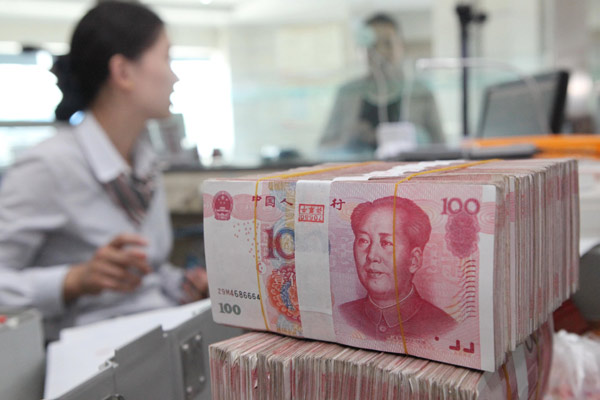 |
|
An employee counts renminbi (yuan) banknotes at a bank in Lianyungang city, East China's Jiangsu province, June 4, 2014. [Photo provided to China Daily] |
"It's a good timing for yuan's inclusion in the Special Drawing Rights (SDR) basket, as fund managers will factor in the decision in January," said Ivan Chung, Moody's head of greater China credit research, at a conference on Tuesday.
Renminbi is still on its way to become a major global currency and that depends on how determined authorities are in opening up the market, said Robert Koepp, director of the Economist Corporate Network. "That's what I and companies as issuers expect most."
The internationalization of renminbi will accelerate the expansion and interactions of the onshore and offshore bond markets. In the short term, the yield spread will keep luring capital overseas, but the two-way flow will drive down the yield of onshore bonds in the long run, said CCXI in a report.
The credit service agency expects global investors to increase their holdings in fixed-income products with higher ratings to 5 percent, while yuan-denominated high-yield bonds will likely face the brunt.
"Credit risks, taking place of currency risk, are becoming increasingly important," said Chung, adding that interconnectivity between the onshore and offshore markets will open more opportunities.
Earlier this week, the International Monetary Fund (IMF) executive board announced renminbi would weigh 10.92 percent in its new SDR basket, putting the currency only after US dollar and the euro, effective from Oct 1, 2016.
The SDR is an international reserve asset created by the IMF to supplement its members' official reserves. It can be exchanged among governments for freely usable currencies in times of need.
The long-awaited decision is expected to give a boost to yuan's internationalization, as the currency overtook the Japanese Yen as the fourth most-used world payment currency in August, according to the global transaction services organization SWIFT.
